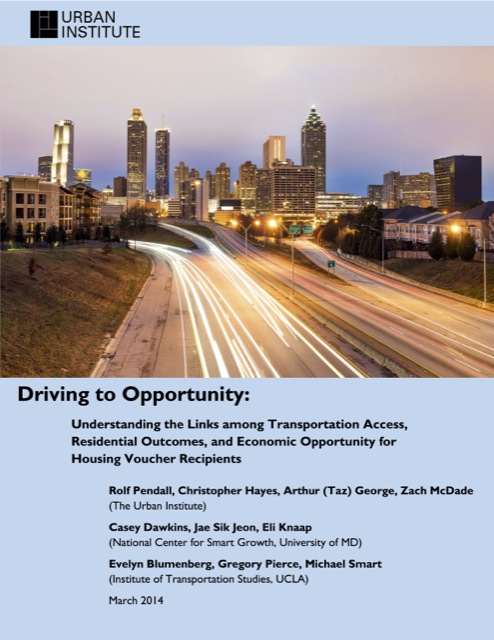“Automobiles tend to be ignored in [sustainability] planning efforts,” says a new study. Yet “automobiles are important to achieving many elements of the sustainability agenda because they are associated with improved access to high-opportunity and more livable neighborhoods,” especially for low-income families.
This isn’t really news. Back in 1997, researchers at UCLA wrote, “Car ownership is a significant factor in improving the employment status of welfare recipients.” In 1998, Yale economist Katherine O’Regan and UC Berkeley economist John Quigley wrote that helping the poor means “promoting the mass transit system that works so well for the nonpoor–the private auto” (see pp. 20-25). In 2003, a Harvard researcher found that, for low-income people, owning a car was more important to gaining a steady income than having a high school diploma.








